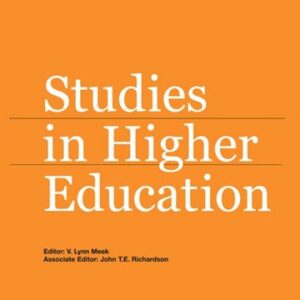Marek Kwiek’s article „What large-scale publication and citation data tell us about international research collaboration in Europe: changing national patterns in global contexts” is listed among the Top 5 Most Cited in the Last 3 Years in „Studies in Higher Education”:
https://www.tandfonline.com/journals/cshe20
The paper is here:
https://www.tandfonline.com/doi/full/10.1080/03075079.2020.1749254?src=
or in PDF here.
Abstract
This study analyzes the unprecedented growth of international research collaboration (IRC) in Europe during the period 2009–2018 in terms of co-authorship and citation distribution of globally indexed publications. The results reveal the dynamics of this change, as growing IRC moves European science systems away from institutional collaboration, with stable and strong national collaboration. Domestic output has remained flat. The growth in publications in major European systems is almost entirely attributable to internationally co-authored papers. A comparison of trends within the four complementary collaboration modes clearly reveals that the growth of European science is driven solely by internationally co-authored papers. With the emergence of global network science, which diminishes the role of national policies in IRC and foregrounds the role of scientists, the individual scientist’s willingness to collaborate internationally is central to advancing IRC in Europe. Scientists collaborate internationally when it enhances their academic prestige, scientific recognition, and access to research funding, as indicated by the credibility cycle, prestige maximization, and global science models. The study encompassed 5.5 million Scopus-indexed articles, including 2.2 million involving international collaboration.

Marek Kwiek’s article „What large-scale publication and citation data tell us about international research collaboration in Europe: changing national patterns in global contexts” is listed among the Top 5 Most Cited in the Last 3 Years in „Studies in Higher Education”:
https://www.tandfonline.com/journals/cshe20
The paper is here:
https://www.tandfonline.com/doi/full/10.1080/03075079.2020.1749254?src=
or in PDF here.
Abstract
This study analyzes the unprecedented growth of international research collaboration (IRC) in Europe during the period 2009–2018 in terms of co-authorship and citation distribution of globally indexed publications. The results reveal the dynamics of this change, as growing IRC moves European science systems away from institutional collaboration, with stable and strong national collaboration. Domestic output has remained flat. The growth in publications in major European systems is almost entirely attributable to internationally co-authored papers. A comparison of trends within the four complementary collaboration modes clearly reveals that the growth of European science is driven solely by internationally co-authored papers. With the emergence of global network science, which diminishes the role of national policies in IRC and foregrounds the role of scientists, the individual scientist’s willingness to collaborate internationally is central to advancing IRC in Europe. Scientists collaborate internationally when it enhances their academic prestige, scientific recognition, and access to research funding, as indicated by the credibility cycle, prestige maximization, and global science models. The study encompassed 5.5 million Scopus-indexed articles, including 2.2 million involving international collaboration.



